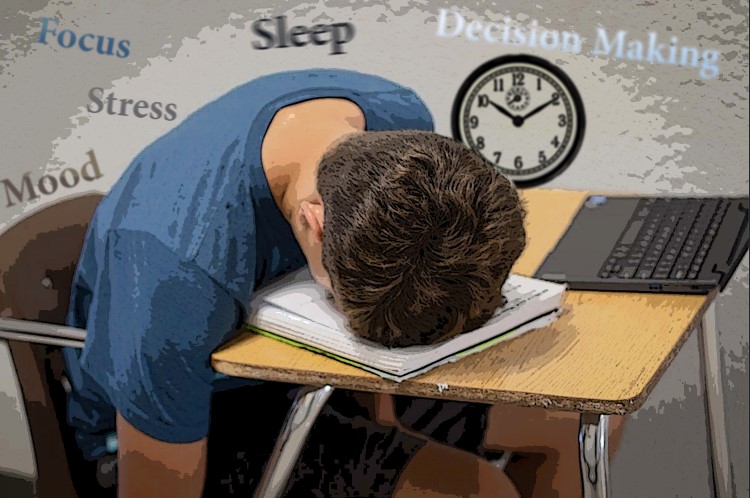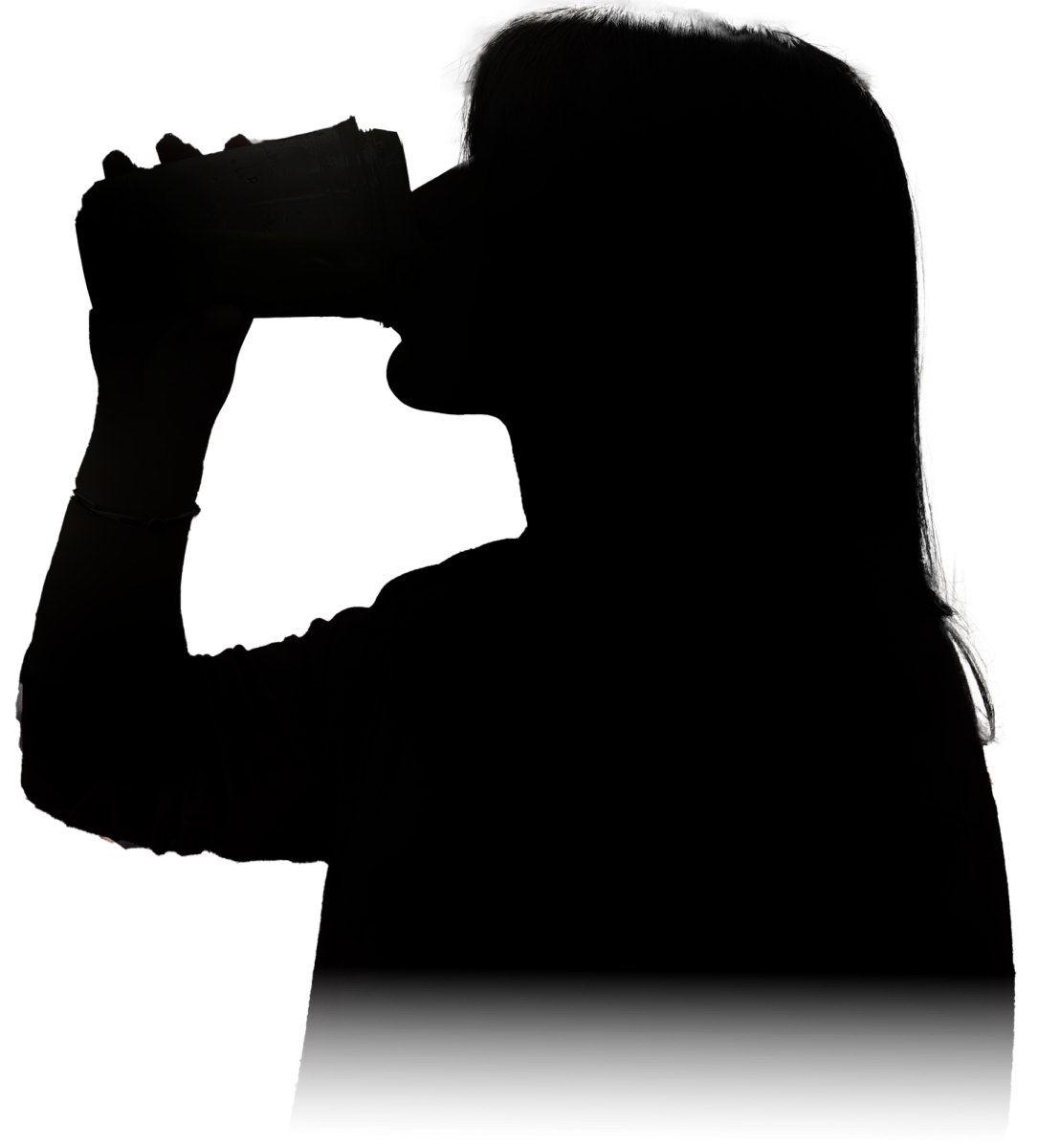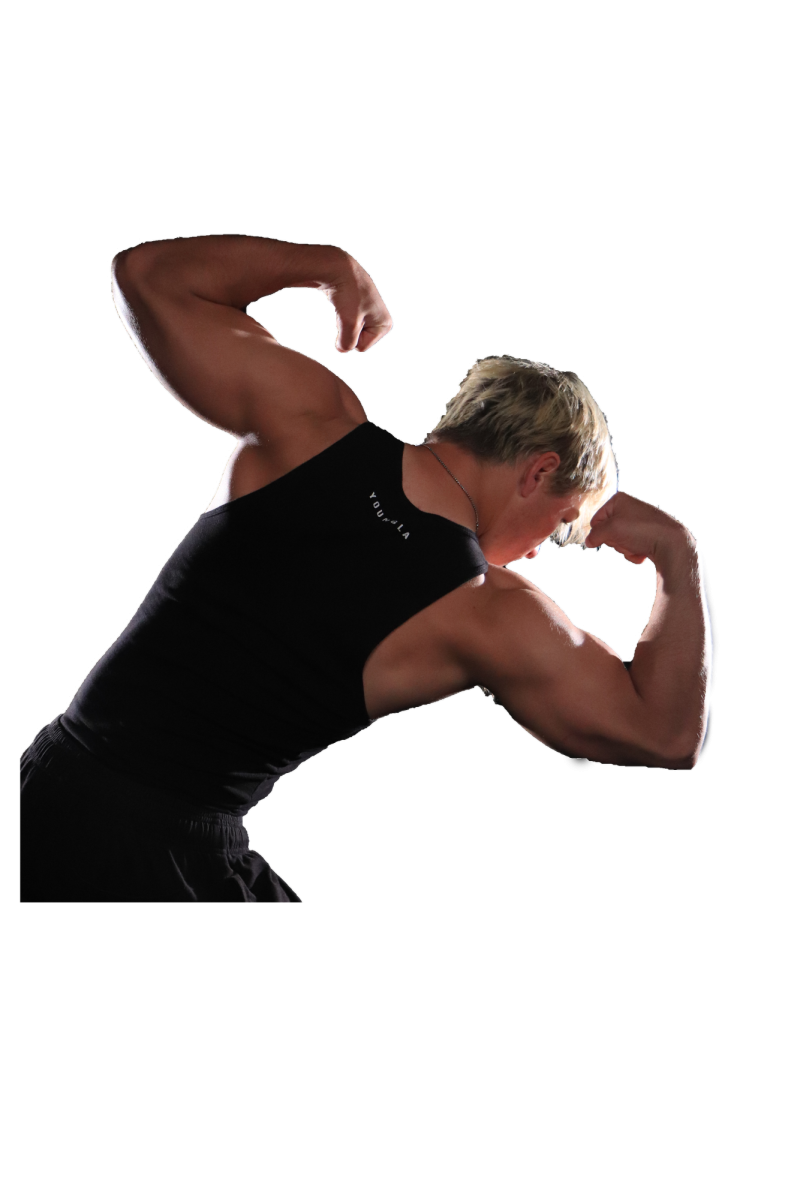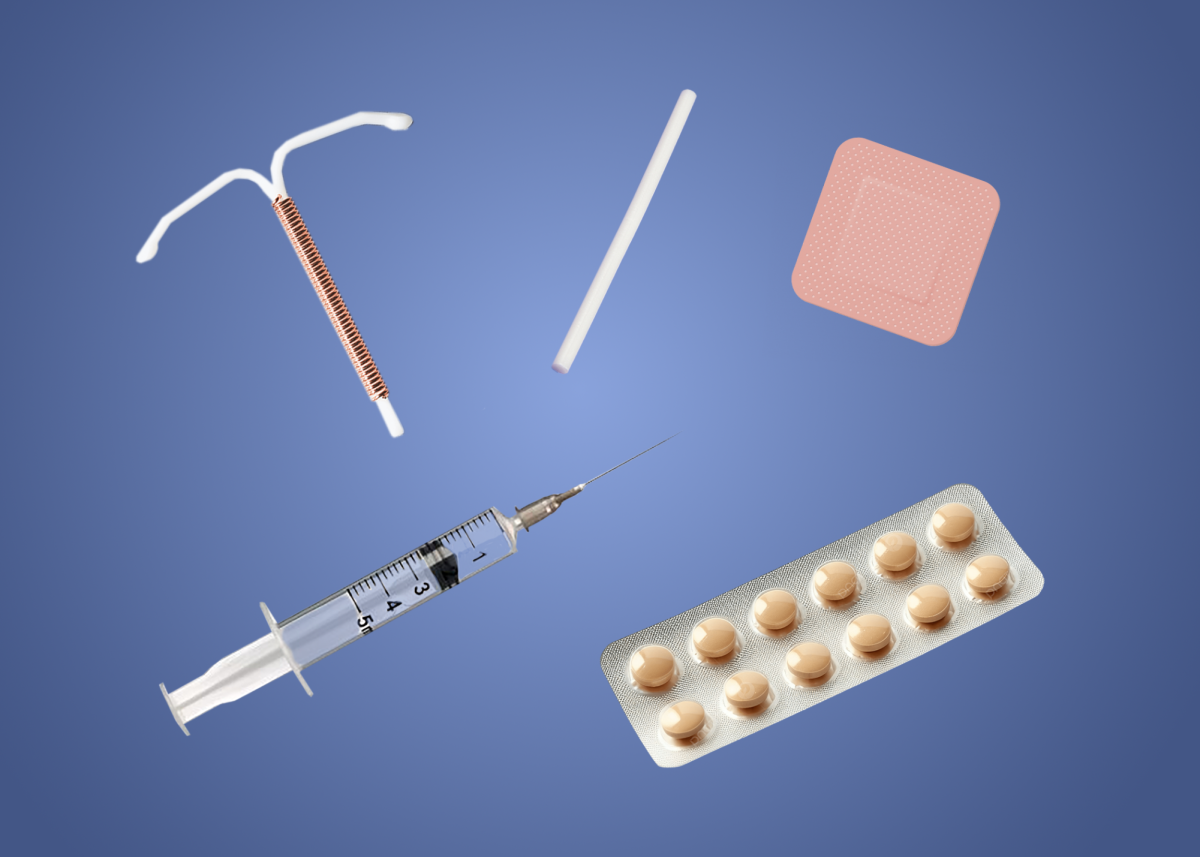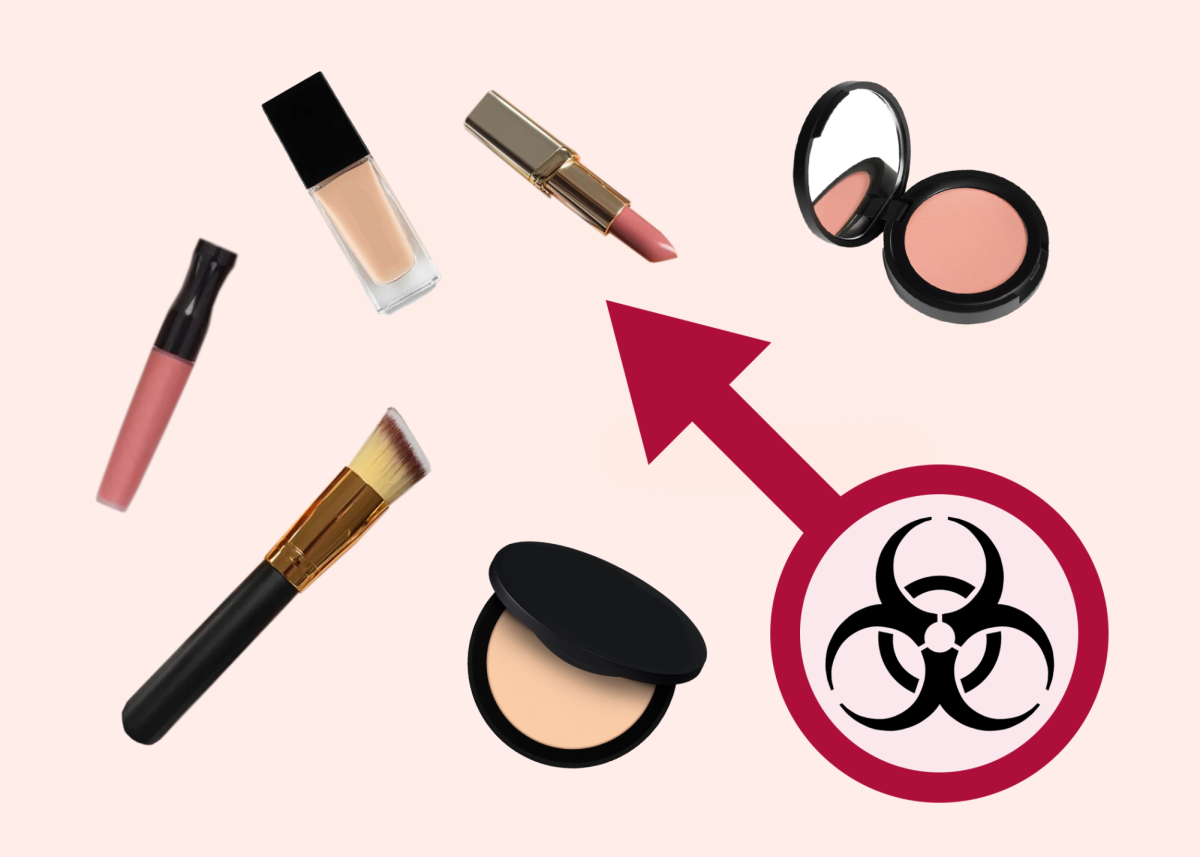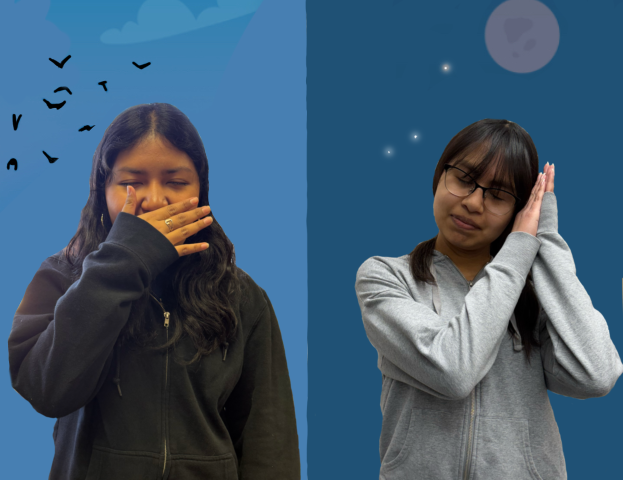Hours aren’t adding up. After surveying 100 PRHS students only 48% of students surveyed reported receiving the recommended 8-10 hours of sleep. Whereas 52% of students surveyed are not getting the sleep that is essential for adolescents’ growing brain development as well as preventing physical and mental health disorders.
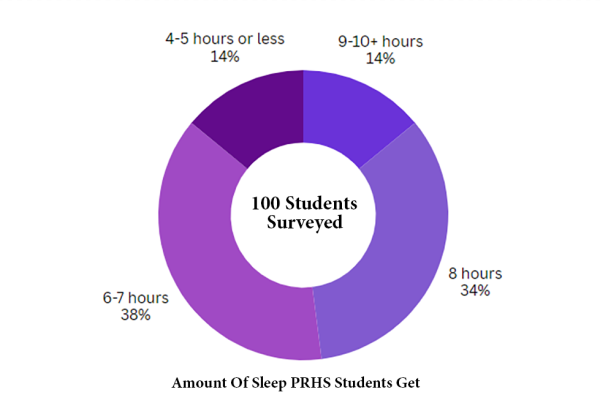
Effects of sleep deficit could be the cause of severe health issues including in relation anywhere from heart disease, dementia, obesity, or potential stroke. Sleep deficit is in direct relation to our overall metabolism, respiratory, and circulatory systems. According to “Verywell Health”, people who showed signs of insomnia or were sleep deprived had a 25% higher risk of receiving heart disease. This may affect many areas of the heart, lead to high blood pressure, or potential diabetes.
On the upside when assimilating adequate sleep there are five key results to a healthier physique. Quality sleep will lead to repairs of blood vessels and the heart. It also helps with your body’s balance and reaction to the hormone, insulin. Alongside these health benefits, sleep will also keep an even balance to the hormones, ghrelin (makes you hungrier) and leptin (makes you feel full). A fourth health benefit allows for healthy growth and development in ways bodies build muscle mass, repair tissue, and restructure cells. Effective sleep will make bodies stronger as it comes to fighting germs as well as overall decreasing risk of the mentioned health disorders. Adane Siegrist, Junior at Paso High, is a multi-sport, straight A student athlete who has input on how he would describe sleep.
Being too much on your feet is getting in the way of your sleep.
55% of PRHS students surveyed displayed how outside curricular activities were getting in the way of their sleep efficiency. Practices and events that go on until late hours often leave little to no time to complete schoolwork and go to sleep by a good hour. Being an athlete playing basketball and volleyball Segrist describes how he feels after not getting a good night’s rest.
“If I don’t get enough sleep, my muscles don’t work well. I don’t perform well in school because I’m mentally tired. And also, my mood changes” Segrist said.
We may not be robots, but sleep gives our mind power.
Sleep is powerful in the way it boosts our mental health. Information from NHLBI (National Heart, Lung, and Blood Institute) explains in which viable sleep helps and improves problem-solving and learning skills. While sleeping, our brains prepare for the next day by forming pathways which allow for us to learn and obtain information.
When sleep deprived there is a link between depression, risk-taking behaviors, suicide, having trouble solving problems, and controlling emotions. When low in sleep efficiency it can be a challenge to get along with others while facing mood-swings, feeling sad, and handling problems paying attention. A study of about 28,000 students done by Newport Academy showed with each hour loss of sleep there was an increase of about 38 percent of feeling sad and hopeless. Joseph De Liema, a student athlete who plays basketball and volleyball, relates how he feels after a good night’s rest.
Rem is your sleeping hidden gem.
Rem sleep (rapid eye movement sleep) is the stage when your eye movements become rapid, your brain becomes more active, breathing hastens, heart rate increases, and you have the ability to dream more intensely. This is the sleeping stage your body reaches after about a 90-minute period of sleep and lasts for only about 10 minutes.
According to studies by “Relias Media,” for every 5% decrease in the average time spent in Rem sleep there is potential direct correlation to a potential 13% increase in the risk towards an early death. Rem sleep is also the stage where bodies process emotions, consolidate memories, further brain development, and prepare for wakefulness. Rem sleep could have a positive effect on students’ alertness and focus on class.
Let your pillow be the only safety cushion you need.
Sleep deficit has the potential of leading some teens to engage in riskier actions. For example, these actions may include, getting involved in alcohol and drug use, drunk driving, and drowsy driving. The NHTSA (National Highway Traffic Safety Administration) reported that there are an estimated average of 1550 deaths as a result of drowsy driving each year. Along with this there was reported about 71,000 injuries and 12.5 billion dollars in monetary loss. The NHTSA also stated that there were 13,384 U.S. deaths in the year 2021. By receiving efficient sleep teens will be able to be more engaged in making safe decisions which would help cut these causes of mortality.
Sleep during the night or fade in the day.
In summary, it is ideal to get 10-8 hours of quality sleep. If regularly getting 7 or less hours, you may pick up on possible major side effects. As the old saying goes: you need to get your beauty sleep. So, if you want to be a beautiful person… sleep!

